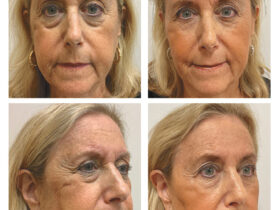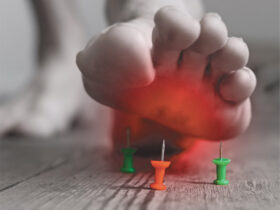Research shows a strong relationship between hearing loss and cognitive decline.
By Hoglund Family Hearing and Audiology Services –
Does your loved one constantly forget items that you know you’ve discussed with them, or is it possible that they didn’t actually hear the message correctly? This question has been a concern for many families who suspect that a family member is showing signs of cognitive decline. Now, new research shows that hearing loss may not only be mistaken for signs of Alzheimer’s disease or Dementia but that hearing loss may actually contribute to cognitive problems!
“We’ve always known that there are similarities between untreated hearing loss and Alzheimer / Dementia symptoms” states John Hoglund BC-HIS, ACA of Hoglund Family Hearing and Audiology Services. “There are times when you may ask Mom a question about a specific topic, and she may give you an answer about a completely different subject that sounds absurd. You may be inclined to think she is showing signs of serious mental processing issues…but she was actually answering …what she heard!” “Similarly it is impossible to correctly remember what you don’t hear properly, so when Dad says that you never told him something that you KNOW that you discussed with him…he may not of understood what you said, but didn’t bother asking you to repeat it.” This gives a false impression of cognitive decline when it is simply hearing loss.
Local Conference Stresses Importance of “Baseline” Hearing Tests!
Hodges University recently hosted the “Updates on Dementia” conference which was sponsored by the Neuropsychiatric Research Center and the Alzheimer’s Association. John Hoglund was asked to speak about the Johns Hopkins Research Concerning the impact that untreated hearing loss can have on patient’s memory and cognitive functioning. “I feel very strongly that people need regularly scheduled hearing tests, especially if they are noticing memory problems. The symptom people usually notice is that although they always HEAR people’s voices…they struggle to understand what is being said to them”, says Mr. Hoglund. “Our practice will provide these tests at no charge and give you a dated copy for your medical record.”
There have been many recent headlines that now show a strong body of evidence that untreated hearing loss can significantly increases the risk of developing Alzheimer’s Disease and Dementia! CNN reports that “The risk of Dementia appears to RISE as hearing ability DECLINES!” AARP quotes a study from Johns Hopkins and the National Institute on Aging that finds that “Men and Women with Hearing Loss are much more likely to develop Dementia and Alzheimer’s Disease!” They further state that “Even mild Hearing Loss DOUBLED the Dementia risk” and the University of Pennsylvania, School of Medicine links even EARLY STAGE Hearing Loss to accelerated BRAIN ATROPHY!
Make Hearing Tests Part of your Annual Physical
Frank R. Lin, M.D., an ear surgeon at Johns Hopkins Hospital in Baltimore, says that hearing loss has an enormous impact on the lives of his patients and their family members. “Yet because it is such a slow and insidious process, it is often left ignored and untreated.” A Senior’s routine medical testing should include a hearing test and early intervention with hearing loss may reduce these negative consequences. “The intent of publishing these research articles is not to create “panic” among the Senior population that they are going to lose their faculties if they have hearing loss,” states Mr. Hoglund. “It is, however, critical that you know you routinely test your hearing.”
Dr. Fred Schaerf of the Neuropsychiatric Research Center also stresses the importance of “Baseline Memory Screenings” if there is any concern about Cognitive Issues! Dr. Schaerf is the former Chief Resident Psychiatrist at Johns Hopkins and has taken a great interest in Dr. Lin’s research. You can schedule both baseline hearing and memory tests by calling (239) 992-4327. You may also send an email to john@hoglundfamilyhearing.com or Angel Duncan of the Neuropsychiatric Research Center at acduncan@neuropsychstudies.com.









